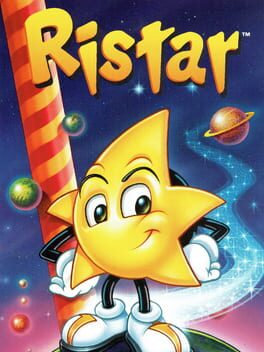Interesting. Frequently, feels more like a puzzle game than an actual platformer: no run button, no momentum, no tough jumps. Instead, getting through every level revolves around picking up on a series of little stage-specific tricks. Take the bosses for example- Ristar's extremely slow movement means 90% of the challenge is figuring out how to avoid their attacks, and the remaining 10% is execution, which seems to be the exact inverse ratio from pretty much every other platformer ever. The focus on learning rather than motor skill makes it nearly impossible to fail a section that you've already beaten, which, combined with the game's short length overall, means that redoing levels after a game over is an absolute breeze, even if you lose your last life on the final boss. The tradeoff here is that, aside from each stage's bonus area, it doesn't feel like there's much to strive for on repeat runs. There is a scoring system, but, from what I gather, it mostly consists of bonking your head on walls at random and hoping they drop gems, which doesn't much interest me personally. I vastly prefer the Sonic or Mario approach where you can feel yourself completing each portion of the game faster or more adeptly each time. But it's hard to argue against its design philosophy- having to pay close attention to the details of your surroundings rather than running past them as speedily as possible- as a vehicle for embracing the Genesis's bouncy, stylish presentation; six-and-a-half bite-sized worlds and every single one is memorable. Even if not my cup of tea personally, it's pretty easy to see why this one is among the more fondly remembered games on the system.
